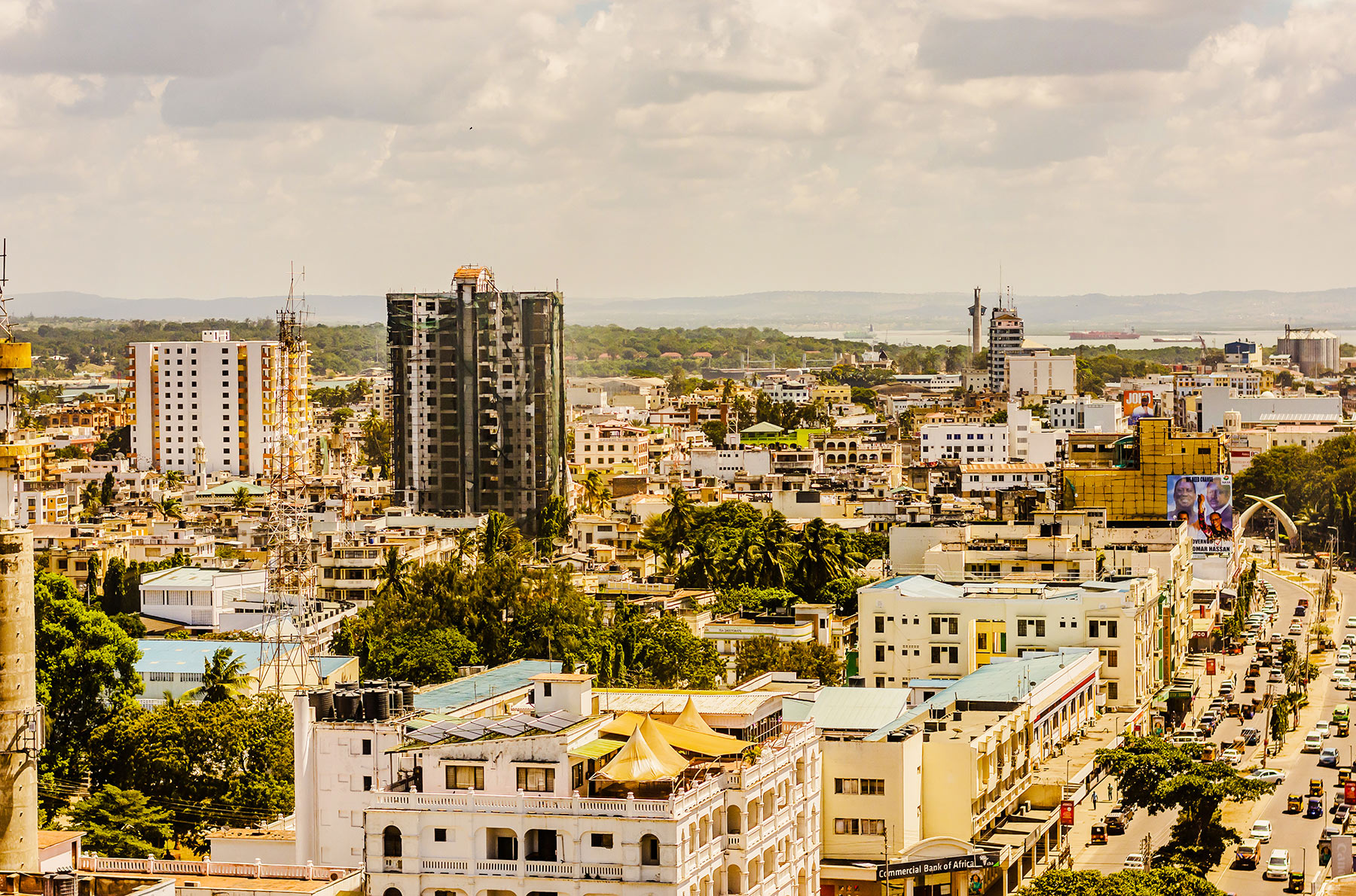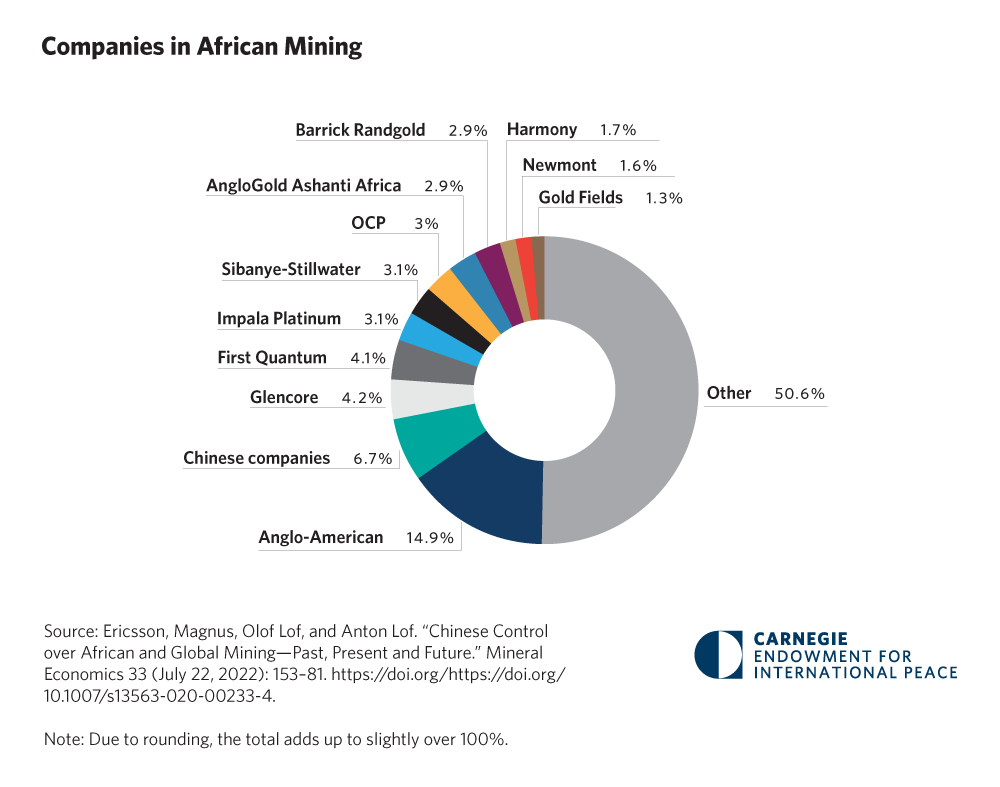
Are We in a New Era for China-Africa Relations?
As the fall season commences in Washington, developments at the recently concluded ninth Forum on China-Africa Cooperation (FOCAC) in Beijing point in the direction of deepening and strengthening China-Africa relations.
September 2024
Dear friends,
As the fall season commences in Washington, developments at the recently concluded ninth Forum on China-Africa Cooperation (FOCAC) in Beijing point in the direction of deepening and strengthening China-Africa relations. There was a very high level of participation from African leaders—with at least fifty-one heads of state making the trip—as well as the announcement of a plethora of financial pledges and new initiatives. In his opening address, Chinese President Xi Jinping unambiguously framed the relationship between China and Africa as one focused on a “joint pursuit of modernization” and announced the elevation of bilateral ties with all African countries that recognize the People’s Republic of China to the level of “strategic relations.”
FOCAC 2024 led to a wide variety of commitments, pledges, and deals in furtherance of this shared goal to “jointly advance modernization” (modernization was mentioned thirty-one times in Xi’s speech!). Xi pledged 360 billion yuan, roughly $50.1 billion, in financing to Africa over the next three years as one part of ten elaborate “partnership actions for modernization to deepen China-Africa cooperation” that include governance experience-sharing, trade and market access for African exports, infrastructure connectivity, green development, and agriculture, among other areas. Various country-specific initiatives and deals were announced on the sidelines. President William Ruto of Kenya announced that Kenya would join the Asia Infrastructure Investment Bank to ensure further concessional funding for infrastructure and development goals. Kenya also signed a $280.9 million loan agreement with China Development Bank to fund fifteen road projects. The presidents of Zambia and Tanzania signed a memorandum of understanding (MOU) to refurbish the 1,156-mile Tanzania-Zambia Railway Authority. Zambian President Haikande Hichilema oversaw a deal between state-owned power company ZESCO and Beijing’s PowerChina to increase use of rooftop solar panels across Zambia. Nigeria’s government signed an MOU with China Civil Engineering Construction Corporation and Sinomach-He for a steel foundry and a $3.3 billion deal with China Road and Bridge Corporation to build a chemical plant and industrial park.
One thing that stood out to me was that not only did Xi host a bilateral meeting with each of the fifty-one African heads of state, but at the start of each of these meetings nearly all of Xi’s African counterparts restated their adherence to the One China Policy (see readouts of the bilaterals here for Gabon, the Gambia, Guinea, Libya, and Seychelles).
So it looks like we are entering a new era of China-Africa relations. This is an argument that nonresident scholar Christian-Géraud Neema is making in a forthcoming Carnegie Africa publication. Be on the lookout for it.
In an article for the Financial Times earlier this month, I explain why African petrostates are missing out on the oil boom. Oil prices have been fairly high since 2021, but the ten major African oil exporters have lower trade surpluses now than they did in 2010. These lower trade surpluses are combined with heavy debt burdens that average about 85 percent of GDP. Meanwhile, oil producers in the Middle East and Eurasia, including Kazakhstan, Oman, Russia, and Saudia Arabi, are having a vastly different experience. This oil bust will affect the ability of African countries to close the $400 billion financing gap that, according to the African Development Bank, the continent needs to meet the United Nation’s Sustainable Development Goals (SDGs) and achieve a just energy transition.
In August, nonresident scholar Folashadé Soulé-Kohndou released a policy brief on the key findings of our workshop, “Maximizing the Benefits of the Renewed Global Interest in Africa’s Strategic Minerals,” hosted in February on the sidelines of the thirtieth annual Investing in African Mining Indaba. The workshop brought together stakeholders for engaging discussion from the government and investor perspective on the process of negotiating mining deals for minerals essential to the low-carbon transition and bridging the capacity gap of African governments. Our Chart of the Month, below, shows the distribution of large companies in the African mining sector, with Chinese companies making up a collective 6.7 percent.
Our fellow Jane Munga is keeping a close eye on developments in Kenya. In June, she released her analysis on Ruto’s visit to the White House and its implications for U.S.-Kenya tech cooperation. In a new piece from late August, she reflects on how Gen Z–led protests have upended the country’s political landscape, and how Ruto can move forward not only to restore trust among Kenyans but to root out corruption.
Early August marked the 2024 meeting of the African Caucus and the release of the 2024 Abuja Declaration of the African Governors. In the declaration, the caucus members cite four key “pathways” for strengthening intra–continental trade: strengthening the African payment ecosystem and accelerating digitalization; enhancing energy access, affordability, and connectivity; leveraging partnerships with multilateral development banks; and reforming the global financial architecture. The declaration commits the members to triple their investments in critical transportation and infrastructure and calls for a comprehensive solution to address the continent’s growing debt distress to allow countries to invest in the SDGs.
This month marks the seventy-ninth session of the United Nations General Assembly. The Carnegie Africa Program will be co–hosting two events and participating in several more. In collaboration with the Office of the Secretary General’s Envoy on Technology and the World Bank Group, on September 21, the Africa Program will host a round table on African AI governance for Africa’s development, risk mitigation, and North-South collaboration. On September 26, the Africa Program will co–facilitate with the Sustainable Energy for All Initiative a roundtable on strengthening local value chains for energy transition solutions in the Global South.
Finally, U.S. President Joe Biden is expected to visit Angola in the coming weeks, ahead of the presidential election. Biden would be the first U.S. president to visit the country. He would also be the first U.S. head of state to visit “sub-Saharan” Africa since Barack Obama in 2015. The Biden administration hosted Angolan president João Lourenco in the White House in November 2023, and the two leaders discussed cooperation, investment, and infrastructure development opportunities.
The Africa Program is gearing up for a busy fall. To stay up to date on our publications and programming, be sure to subscribe to our newsletter and follow us on X (formerly Twitter) at @AfricaCarnegie.
Sincerely,
Zainab Usman
Director, Carnegie Africa Program
Chart of the Month
Our Chart of the Month shows the top companies that make up the mining sector in Africa. In 2022, Chinese companies comprised 6.7 percent of total mining presence on the continent.

Features
PETRO STATES
Africa's petrostates are missing out on the oil boom — and it matters. Climate activists might celebrate the contraction in production but countries need to finance their energy transitions.
By Zainab Usman
CHINA
This China in Africa podcast episode discusses key events from the three-day Forum on China-Africa Cooperation (FOCAC).
By Christian-Géraud Neema (China Global South Project)
CRITICAL MINERALS
Maximizing the Benefits of the Renewed Global Interest in Africa’s Strategic Minerals: Key insights From a Peer-Learning Negotiation Workshop.
By Folashadé Soulé
KENYA
Kenya is at an inflection point. It needs a new path to progress.
By Jane Munga
COP
African countries are gaining greater representation at COP, but it is unclear whether this increased visibility will lead to better climate outcomes for the continent.
By Victoria Markiewicz, Praise P.T. Gandah, and Nicholas R. Micinski
Developments on our Radar
- Nigeria's Giant Dangote Oil Refinery Started to Make Gasoline [Bloomberg]
- China to “Revitalise” Ageing Railway Linking Zambia, Tanzania [Reuters]
- Ghana Signs Agreement to Build Small NuScale Nuclear Reactor [Reuters]
- U.S.-Nigeria Strategic Energy Dialogue Highlights Key Bilateral Cooperation [U.S. Department of State]
- Exclusive: Biden to Make First Africa Visit with Angola Trip in Coming Weeks, Sources Say [Reuters]
Professional Development Opportunities
- World Bank Young Professionals Program [Learn more here]
Carnegie does not take institutional positions on public policy issues; the views represented herein are those of the author(s) and do not necessarily reflect the views of Carnegie, its staff, or its trustees.